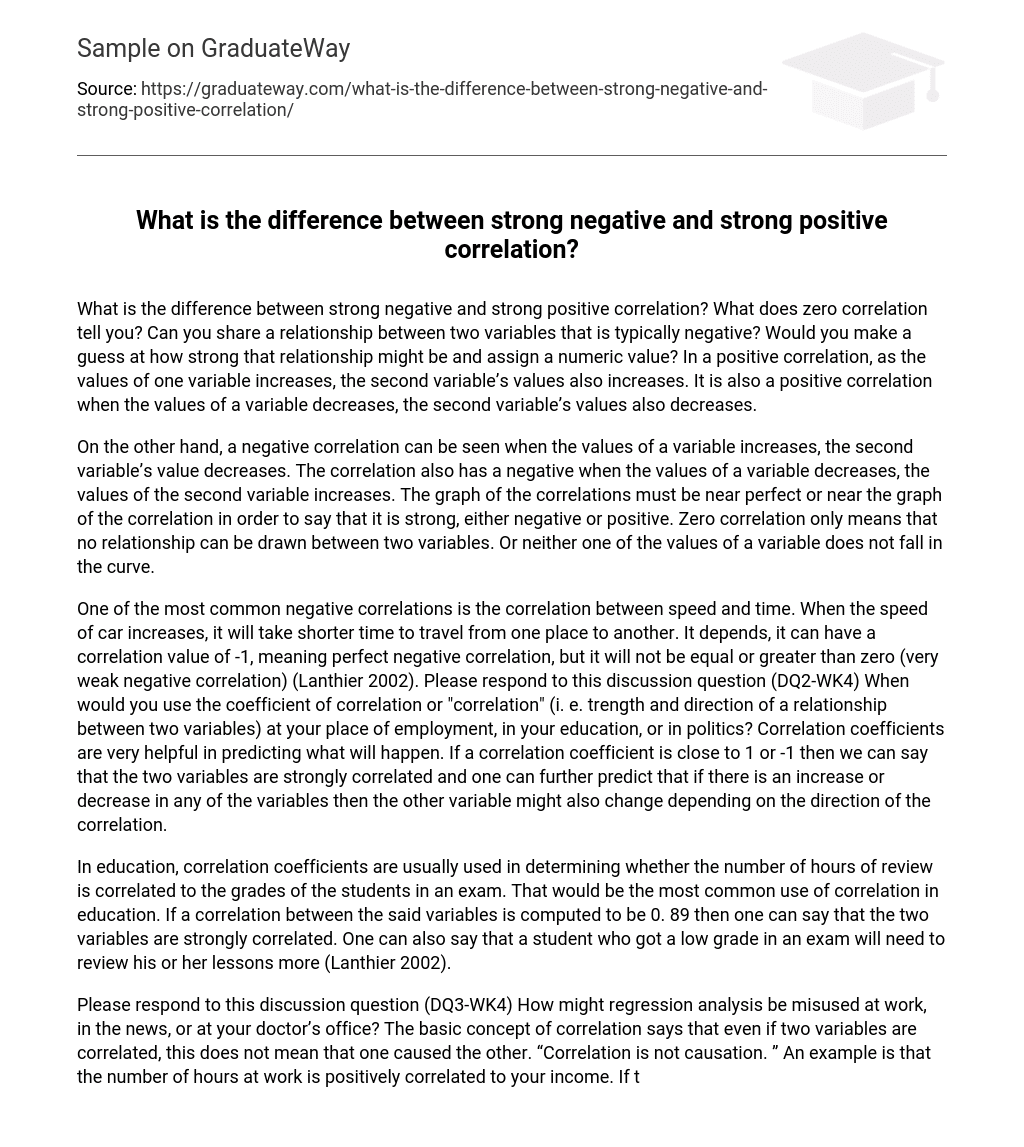What is the difference between strong negative and strong positive correlation? What does zero correlation tell you? Can you share a relationship between two variables that is typically negative? Would you make a guess at how strong that relationship might be and assign a numeric value?
In a positive correlation, as the values of one variable increases, the second variable’s values also increases. It is also a positive correlation when the values of a variable decreases, the second variable’s values also decreases. On the other hand, a negative correlation can be seen when the values of a variable increases, the second variable’s value decreases. The correlation also has a negative when the values of a variable decreases, the values of the second variable increases. The graph of the correlations must be near perfect or near the graph of the correlation in order to say that it is strong, either negative or positive. Zero correlation only means that no relationship can be drawn between two variables. Or neither one of the values of a variable does not fall in the curve.
One of the most common negative correlations is the correlation between speed and time. When the speed of car increases, it will take shorter time to travel from one place to another. It depends, it can have a correlation value of -1, meaning perfect negative correlation, but it will not be equal or greater than zero (very weak negative correlation) (Lanthier 2002).
When would you use the coefficient of correlation or “correlation” (i. e. trength and direction of a relationship between two variables) at your place of employment, in your education, or in politics?
Correlation coefficients are very helpful in predicting what will happen. If a correlation coefficient is close to 1 or -1 then we can say that the two variables are strongly correlated and one can further predict that if there is an increase or decrease in any of the variables then the other variable might also change depending on the direction of the correlation.
In education, correlation coefficients are usually used in determining whether the number of hours of review is correlated to the grades of the students in an exam. That would be the most common use of correlation in education. If a correlation between the said variables is computed to be 0. 89 then one can say that the two variables are strongly correlated. One can also say that a student who got a low grade in an exam will need to review his or her lessons more (Lanthier 2002).
Please respond to this discussion question (DQ3-WK4) How might regression analysis be misused at work, in the news, or at your doctor’s office?
The basic concept of correlation says that even if two variables are correlated, this does not mean that one caused the other. “Correlation is not causation. ” An example is that the number of hours at work is positively correlated to your income. If there is a decrease in income, this does not mean that the number of hours at work is the cause of the decrease in income (Lanthier 2002).





